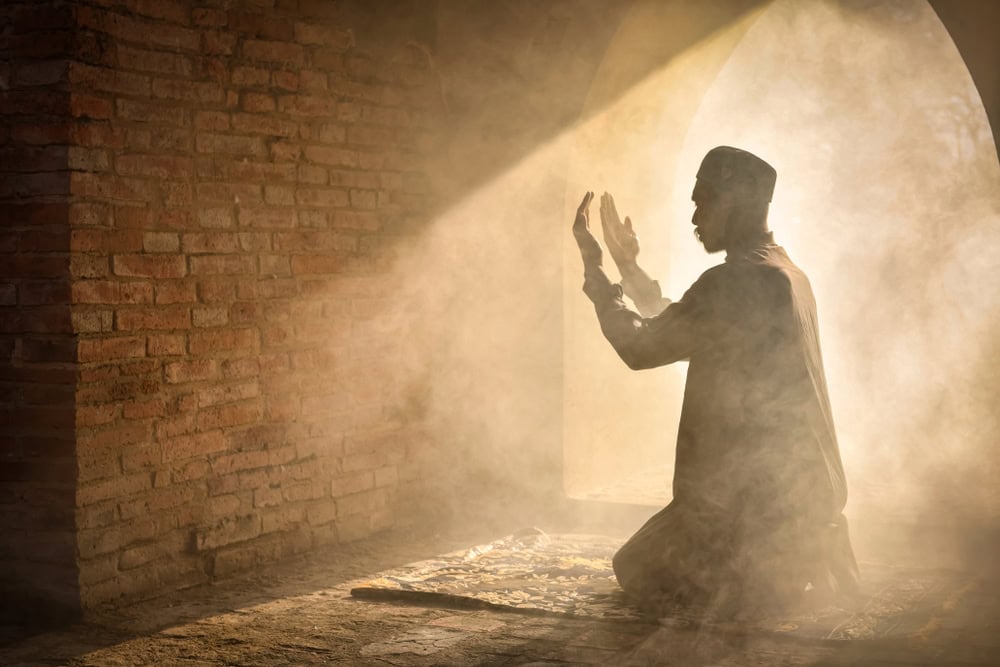Can a Raqi (One Who Performs Ruqya) Touch a Woman during Ruqya?
Shafi'i Fiqh
Answered by Shaykh Dr. Muhammad Abu Bakr Badhib
Question
Is it permissible for a raqi (one who performs ruqya) to place his hand on a woman during the ruqya?
Answer
In the name of Allah, and all praise is due to Allah, and blessings and peace be upon our master Muhammad, the Messenger of Allah, his Family, his Companions, and those who follow him.
Introduction to Ruqya
Ruqya (spiritual healing) is a well-established and permissible practice in Islam, and it has been practiced since the early days of Islam. It is authentically reported that the Prophet (Allah bless him and give him peace) performed ruqya and instructed his companions to show him their ruqyas. Many of the noble Companions also performed ruqya on their children and others.
Prophetic Guidance on Ruqya
‘Auf Ibn Malik reported: “We used to practice ruqya in the pre-Islamic period, so we said, ‘O Messenger of Allah, what do you think about that?’ He replied:
‘Present your ruqyas to me. There is nothing wrong with ruqya as long as it does not involve shirk.’” [Abu Dawud]
Abu Sa‘id narrated that Gabriel came to the Prophet (Allah bless him and give him peace) and said: “O Muhammad, are you ill?” He said: “Yes.” Gabriel said: “In the name of Allah, I perform ruqya for you, from everything that harms you, from the evil of every soul or envious eye. May Allah heal you. In the name of Allah, I perform ruqya for you.” [Muslim]
Placing the Hand on the Area of Pain
As for placing the hand on the area of pain during ruqya, this is also mentioned in the sunna. ‘Uthman Ibn Abi al-As al-Thaqafi reported that he complained to the Messenger of Allah (Allah bless him and give him peace) about the pain he had felt in his body since he had become Muslim. The Messenger of Allah (Allah bless him and give him peace) said to him:
“Place your hand on the part of your body where you feel pain and say, ‘Bismillah’ (in the name of Allah) three times, and then say seven times: ‘I seek refuge in Allah and His Power from the evil of what I find and what I guard against.’” [Muslim]
Scholarly Commentary
Qurtubi mentioned in his explanation of this hadith: “This command is for the purpose of teaching and guiding to what benefits by placing the raqi’s hand on the patient and wiping it, and this was not exclusive to the Prophet (Allah bless him and give him peace). Rather, every raqi should do this. This has been confirmed by the practice of the Prophet (Allah bless him and give him peace) and his companions, as mentioned in the previous hadiths. Therefore, the raqi should not substitute this with wiping with iron or anything else, as no one from the predecessors did this, and it has no basis.” [Qurtubi, al-Mufhim]
In the book “al-Tanwir Sharh al-Jami‘ al-Saghir,” it is mentioned: “This is one of the divine remedies that are among the fastest cures for those whose intention is sincere, and it seems to be for every pain in the limbs.” [San‘ani, al-Tanwir]
Manawi said: “Its effect appears for those whose certainty is strong and whose sincerity is complete.” [Manawi, al-Taysir]
Guidelines for Touching During Ruqya
Based on the above, there is no objection to the raqi placing his hand on the head or stomach of the patient during ruqya, regardless of the patient’s gender, provided that there is no seclusion (khalwa) and that direct contact with women is avoided.
The difference between ruqya for a man and a woman lies in direct contact, i.e., touching the patient’s body. Unlike surgical procedures and physical illnesses, which require examination by a doctor if no female doctor is available, it is forbidden to touch or look at any part of a non-mahram woman’s body during ruqya.
Conclusion
This summarizes the response to this question. The best path is to follow the Sunna, avoid innovations, and stay away from anything that may arouse suspicion or lead to prohibited actions, even if it seems beneficial, as in the case of Ruqya. Satan runs through the son of Adam like blood.
All praise is due to Allah in the beginning and the end, and peace and blessings be upon our Master and Prophet Muhammad and his Family and Companions.
[Shaykh] Dr. Muhammad Abu Bakr Badhib
Shaykh Dr. Muhammad Abu Bakr Badhib is a prominent Islamic scholar from Yemen. He was born in Shibam, Hadhramaut, in 1976. He received his degree in Shari‘a from Al-Ahqaf University, a master’s degree from the Islamic University of Beirut, and a PhD in Usul al-Din from Aligarh Muslim University (AMU).
He studied under great scholars such as Shaykh al-Habib Ahmad Mashhur al-Haddad, Shaykh Fadl Ba‘ fadl, Habib Salim al-Shatiri, Habib Ali Mashhur bin Hafeez, and others. He has served as the Director of Publications at Dar al-Fiqh, the former Deputy Director of Cultural Relations at Al-Ahqaf University, a former Assistant for Employee Affairs at Atiyah Iron Company, a researcher at the Sunna Center affiliated with the Dallah al-Baraka Foundation, and a researcher at Al-Furqan Foundation’s Makka al-Mukarrama and Madina al-Munawwara Encyclopedia branch.
Currently, he is a researcher at Al-Furqan Foundation’s Makka al-Mukarrama and Madina al-Munawwara Encyclopedia branch, teaches traditionally through the Ijaza system at Dar al-Fuqaha in Turkey, supervises the Arabic department at Nur al-Huda International Institute (SeekersGuidance), and is a member of the Board of Trustees of the Manuscript House in Istanbul.
His works include “The Efforts of Hadhramaut Jurists in Serving the Shafi‘i School,” “Contributions of Hadhramaut Scholars in Spreading Islam and its Sciences in India,” “Hada’iq al-Na‘im in Shafi‘i Fiqh,” in addition to verifying several books in Fiqh, history, the art of biographies, and Asanid (chains of narration).
